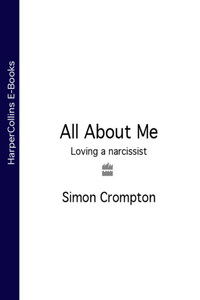Why do women fall in love with bad guys? It’s a question that worried me and countless other males in their tender years when we never seemed to get the girl. It was always the mean, arrogant ones who seemed to succeed.
Why was it, I asked myself as I struggled to make an impression in my twenties, that the same self-centred showoffs who got the girls were now also getting the top jobs and glamorous lifestyles? They seemed to be rising to the top like cream (or fat, depending on your perspective). Whatever happened to the benefits of trying to be a nice guy?
Not that I was bitter. But then, as the years rolled on, I saw my arguably warped perspective changing, and what emerged was not pretty. I saw the relationships involving moody self-glorifiers proving far from idyllic and beginning to break up. I saw those grandiose schemes and high-flying lifestyles begin to crumble. And there seemed to be an awful lot of collateral damage and emotional debris left in these people’s wake.
This, in a sense, is what this book is about. It’s about a type of human personality – glamorous, self-centred, difficult, and intensely vulnerable – that we call narcissistic. Narcissists are people who are full of big ideas of themselves and for themselves, but they need others to reflect their glory, and find real empathy almost impossible. They are people who mean trouble when it comes to relationships.
There are a lot of them around, and you’re bound to have come across them. In fact, if you’ve picked up this book, you’re probably wondering whether your partner is a narcissist or not. It’s a good question, and the answer is probably yes – although, as we’ll see, there’s a world of a difference between someone who shows narcissistic traits, which is far from uncommon, and someone who is a full-blown narcissistic personality.
This book is about the hold narcissists have on us – how they are easy to fall in love with, how they have a major influence on our culture, how they can damage the lives of those around them, and how they can be incredibly hard to disentangle yourself from.
But it’s also a book about all of us. Narcissism is a concept, not a diagnosis. In other words, it describes common characteristics in human beings. We all need a bit of narcissism – a bit of self-centredness, a bit of overwhelming self-regard – to be able do anything, to feel good about ourselves, to impose ourselves a little. It’s just that in some people, those tendencies can be consistently dominant, even overwhelming, and that means trouble.
Ever spent much time with a toddler? Then you’ll have experienced narcissism. For all their allure, babies and toddlers are unable to see the world from anyone else’s perspective apart from their own. Don’t get what you want? Then throw your rattle out of the pram. It’s quite natural and programmed into them – into all human beings. But as we get older, through the influence of our parents and others, most of us lose that self-regarding, impulsive streak to a greater or lesser extent – we learn that there are consequences to our actions, and that we have to take into account the needs and wants of others if we are to be happy.
Throughout history, some of us have never learned those lessons, and continue to act like toddlers. It’s part of human life, achievement and tragedy, and it influences every one of us. It’s narcissism, and it makes us the flawed and fascinating things we are.
Once you begin to understand narcissism – and to use it as a lens through which to see much of human behaviour – then lots of things that are mystifying and frustrating about people, relationships and our culture begin to fall into place. Relationships in particular.
Take this plea for help in an online agony column:
Hi. This may seem silly but it hurts me. The thing is, my friends invite me and my boyfriend out every time they are going out, and when I ask my boyfriend if he wants to go out he always makes up an excuse. Like on Saturday, my friends had arranged to go for a night out and asked me and my boyfriend to go, and when I asked him he said maybe. Then two hours later he said he wasn’t feeling well. But then his sister phoned and asked if we wanted to go and play pool and he said yeah. We got into an argument because I thought he was being selfish, because my friends had asked first. When I asked if he had a problem with my friends, he said no, he just didn’t want to go. We ended up staying in that night but he hardly spoke to me. I asked him the following morning why he had hardly spoken to me the night before. He said that it was because he wanted to go play pool. Is he being selfish, or am I just being silly?








